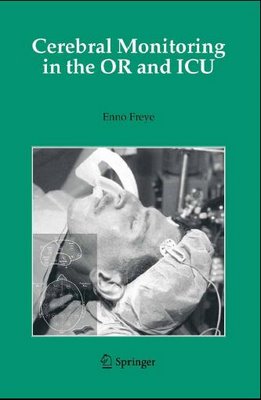
The evaluation of an ICU patient’s degree of consciousness has taken on great importance. The problem of unintended intraoperative rivival and compensation has resulted in the need for monitoring the level of unconsciousness with instruments that measure the patient’s cerebral activity rather than vital signs (arterial pressure, cardiac rate, tear secretion, etc.). In addition, the need for salvaging organs for transplantation requires the anesthesiologist to understand cerebral mechanisms to diagnose brain death before the disappearance of vital signs which renders the organs useless fortransplantation. In the final analysis the physician has had
to change his vision of cortical activity considered, if notstrictly indispensible, at least of secondary importance relative to the hemodynamic consequences to the patient.
The problem is even more complex in those nations where the teaching of anesthesia and reanimation is combined, presenting the physician with the twofold chore of cerebral monitoring to prevent intraoperative awakening and to detect brain death.
This comprehensive volume will serve as a complete guide to the clinical application of computer assisted systems in monitoring central nervous functions both in the OR and ICU. It presents practical guidelines and therapeutic indications for computerized EEG and Somatosensory Evoked Potential (SSEP) monitoring for the experienced user as well as the novice, leading the newcomer step-by-step to a level of advanced monitoring.
Book details:
Author: Enno Freye, MD, PhD
Publisher:Springer
Pages:183
Size:9,20 MB
Format:PDF
Download
password:DrWael
Related Books:
Monitoring Level of Consciousness during anesthesia & sedation
Handbook of Neuroanaesthesia
Notes in Neuroanaesthesia and Critical Care
Textbook of Neuroanaesthesia and Critical Care
No comments:
Post a Comment